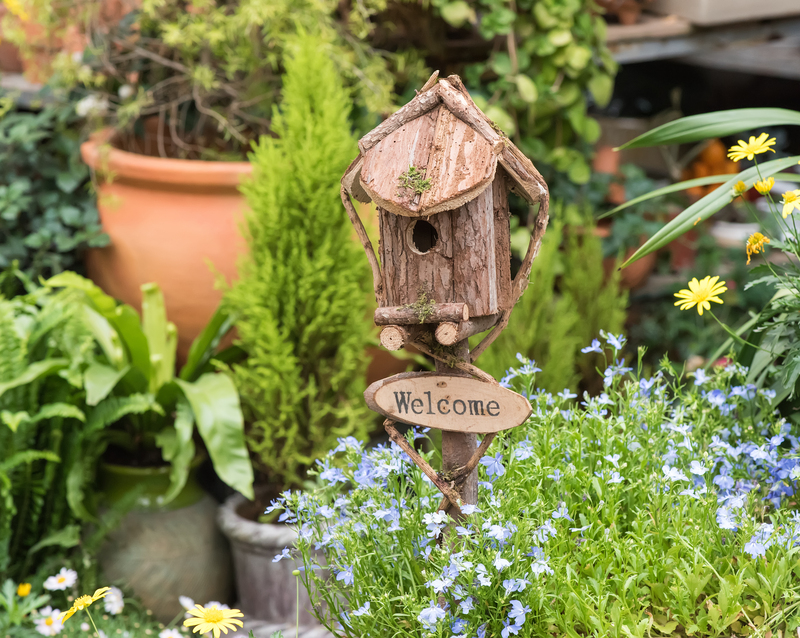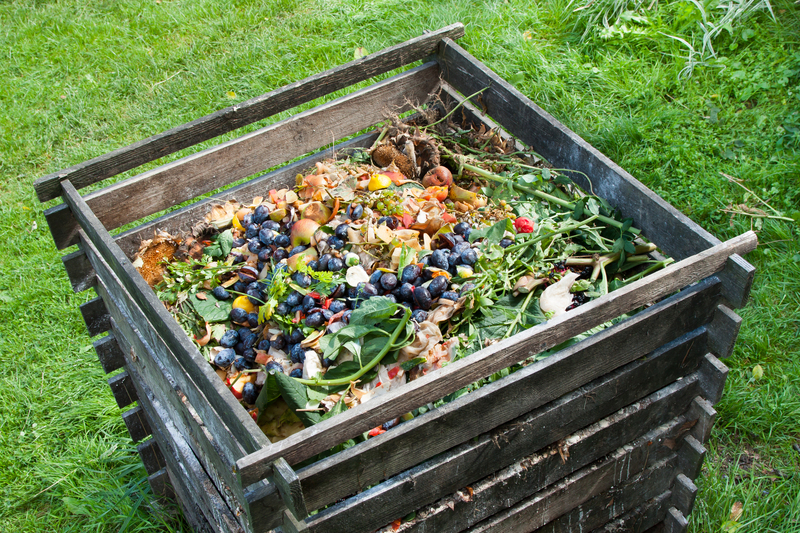Green Kitchen Cleanup: Proper Pots and Pans Recycling
Is your kitchen cluttered with damaged or unwanted cookware? When it comes to decluttering your kitchen in an eco-friendly way, proper pots and pans recycling plays an essential role. Not only does it keep your kitchen organized, but it also helps reduce landfill waste and conserve resources. In this comprehensive guide, we'll dive deep into how to dispose of your old pots and pans responsibly, offer sustainable alternatives, and unravel the environmental impact behind such practices.
Why Pots and Pans Recycling Matters
Many homeowners are unsure of what to do with old cookware once it's no longer useful. Most pots and pans are made from a combination of metals and, occasionally, non-stick coatings, making disposal a complex issue. Recycling cookware not only prevents environmental harm but also ensures valuable materials are reused in new products.
Environmental Impact of Improper Cookware Disposal
- Landfill Overcrowding: Tossing pots and pans in the trash adds to landfill supply, where decomposition is slow and inefficient.
- Toxic Leaching: Non-stick coatings and some metals can leach toxins into soil and water if left in landfills.
- Resource Depletion: Recycling old cookware means less mining for fresh metals, conserving precious resources and reducing energy use.

Understanding Pots and Pans Materials
Before recycling, it's crucial to identify your cookware's material composition. This dictates how and where the items can be recycled. Common types include:
- Stainless Steel: Highly recyclable and often accepted at most metal recycling centers.
- Aluminum: Lightweight and valuable within recycling industry standards.
- Copper: Fetches a premium recycling price, but may require stripping off handles and coatings.
- Cast Iron: Exceptionally durable and 100% recyclable.
- Non-Stick Cookware: Requires proper handling due to its chemical coating.
How to Prepare Your Pots and Pans for Recycling
Proper preparation is key for successful recycling of kitchenware. Follow these steps to ensure your items are ready:
- Clean thoroughly: Remove all food residue and oils to meet recycling facility requirements.
- Separate by material: Detach plastic or wooden handles, lids, and any non-metal accessories.
- Check for coatings: Confirm if your pans have Teflon or other non-stick layers as these impact recycling eligibility.
- Remove glass lids: Glass cannot always be recycled with metals and should be handled separately.
Can Non-Stick Pans Be Recycled?
This is a common question in any green kitchen cleanup guide. Non-stick coatings such as PTFE (Teflon) can complicate recycling as they are difficult to separate and may emit toxic fumes when melted. Some specialty recyclers or manufacturers now accept non-stick pans but often request you:
- Contact local recycling centers: Ask if they accept non-stick cookware or can refer you to a suitable facility.
- Mail-in programs: Some brands, like TerraCycle, provide recycling solutions for non-stick pans.
- Manufacturer take-back: Certain companies have green programs to collect old cookware for responsible recycling.
Special Note:
Never burn or crush non-stick pans to remove coatings at home; it's unsafe and environmentally damaging.
Where to Recycle Old Pots and Pans
Depending on your pan's material and condition, you have several options for eco-friendly cookware disposal:
1. Local Scrap Metal Recyclers
Most metal pots and pans (except those with heavy non-stick coatings) are accepted at scrap metal yards. These centers process stainless steel, cast iron, copper, and aluminum cookware, ensuring materials are sorted and recycled efficiently.
2. Community Recycling Programs
Contact your municipal waste department or search online for kitchenware recycling days. Many cities host e-waste or metal recycling drives specifically for household items, including old pans.
3. Donation Centers and Second Hand Stores
If your cookware is still usable:
- Donate to local charities, thrift shops, or shelters.
- Community kitchens, daycares, or art collectives may accept gently used pots and pans.
- List items on freecycle groups or community boards to find a new home.
4. Manufacturer Recycling Initiatives
Some cookware brands are serious about sustainability. Programs like Calphalon's "Recycle Your Cookware" let you send back old kitchenware in exchange for discounts or responsible recycling service.
Upcycling: Creative Ideas for Old Pots and Pans
You don't always have to throw away or recycle old cookware! Upcycling transforms your cookware into useful or decorative items:
- Planters: Turn deep pots into quirky outdoor or indoor plant holders.
- Bird Baths/Feeders: Larger, shallow pans make creative bird baths or feeders for your garden.
- Wall Art: Hang colorful or vintage cookware in creative patterns for a kitchen-themed art display.
- Organizers: Repurpose frying pans as wall organizers for utensils, spices, or office supplies.
- Crafts with Kids: Old pots become the perfect canvas for painting, mosaic designs, or musical instruments.
These ideas are ideal for those committed to a zero-waste kitchen cleanup and make for fun DIY projects!
Sustainable Choices: Buying Recyclable Cookware
Proper pots and pans recycling begins with mindful purchasing. The next time you upgrade your cookware, look for:
- 100% Stainless Steel or Cast Iron: These have long lifespans and are universally accepted at recycling centers.
- Removeable Handles: Makes recycling easier, as parts can be separated by material.
- Recycled Material Brands: Choose cookware made from post-consumer metals.
- Green-certified Coatings: Opt for pans with ceramic or natural coatings, which are less polluting than traditional non-stick finishes.
Making smart purchasing choices leads to an easier, more responsible kitchenware recycling process down the line.
Frequently Asked Questions About Pots and Pans Recycling
1. Can I Put Old Pans in My Curbside Recycling Bin?
Most residential recycling programs do not accept pots and pans with standard curbside pick-up due to their weight, size, and mixed materials. Always check with your recycling provider for local policies.
2. Is There a Way to Recycle Both Metal and Teflon-Coated Pans?
Recycling metal pans is straightforward at scrap yards. Teflon- or ceramic-coated cookware requires a specialty recycler or manufacturer program. If unavailable, consider upcycling or donating pans still in useable condition.
3. What Happens to Recycled Cookware?
After processing at metal recycling facilities, your old pots and pans are melted down and their base metals extracted. These materials become car parts, construction materials, or even new cookware--part of a true circular economy.
4. Are There Eco-Friendly Alternatives for Non-Stick Pans?
Yes! Look for ceramic-coated pans or seasoned cast iron for natural non-stick performance without hazardous chemicals.
Tips for Maintaining Your Cookware to Reduce Waste
Another aspect of a sustainable kitchen is minimizing the need to replace cookware. Here's how:
- Follow manufacturer's cleaning instructions to prolong pan life.
- Avoid metal utensils on non-stick surfaces to prevent flaking.
- Season cast iron regularly to maintain its natural, non-stick surface.
- Store properly--nesting pots and pans with protection helps prevent scratches and warping.
With proper care, you'll need to recycle your pans less often, making your kitchen greener by default!

Summary: Making Your Kitchen Cleanup Greener
Proper pots and pans recycling is one of the easiest ways you can contribute to a healthier planet straight from your kitchen. Whether you recycle, upcycle, or donate, being mindful in your disposal methods keeps waste out of landfills and raw materials in the supply chain. Remember:
- Sort and clean cookware before recycling.
- Check with local and specialty facilities for non-stick and multi-material pans.
- Give new life with donation or creative upcycling.
- Purchase durable, recyclable cookware for long-term sustainability.
Take action today and join the movement toward a greener, cleaner kitchen--your home and the earth will thank you!
Additional Resources
- US EPA Guide on Recycling
- TerraCycle Cookware Recycling Program
- Goodwill Donation Guidelines
- Calphalon's Cookware Recycling Initiative
Ready for your green kitchen cleanup? Choose responsible pots and pans recycling and ladle up a more sustainable world--one meal at a time!